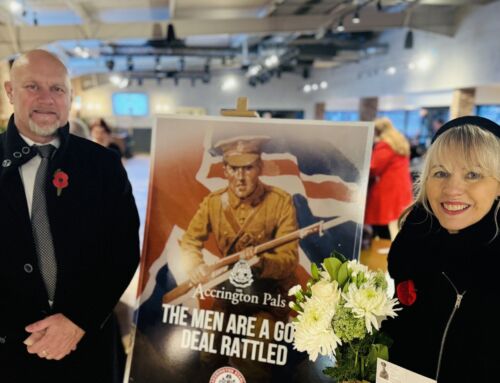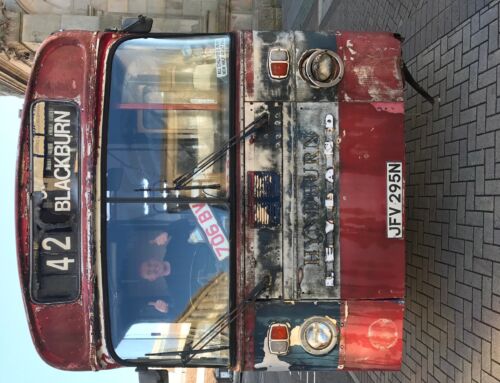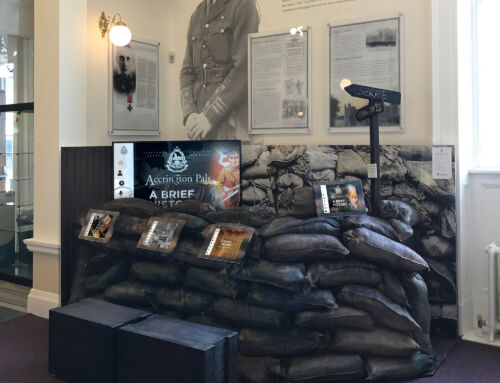A paving stone was laid yesterday in tribute to a soldier who served with the East Lancashire Regiment and was awarded the Victoria Cross for his outstanding bravery during the First World War.
The commemorative paving stone was laid at the Church Street Memorial in Accrington at 11 am on 27th March, in tribute to 2nd Lieutenant Basil Arthur Horsfall VC, exactly 100 years on from the heroic act for which he received his medal, with members of his family in attendance.
Basil was awarded the Victoria Cross, the highest and most prestigious award for gallantry in the face of the enemy that can be awarded to British and Commonwealth forces, for his most conspicuous bravery and devotion to duty.
Basil was born in Colombo, Ceylon on 4th October 1887, the youngest son of Mr W Horsfall. He was a member of the Ceylon Engineers, a locally-raised force of European expatriates largely drawn from the Public Works Department which was mobilised for the duration of World War I. In July 1916, aged 28, he returned to Britain where he was gazetted as a 2nd Lieutenant in the 1st Battalion, East Lancashire Regiment, on 19 December 1916.
Basil was wounded on 11 May 1917 whilst serving with the 1st Battalion and after recovery and convalescence in England was attached to the 11th (Service) Battalion, East Lancashire Regiment (the Accrington Pals) on 24th October 1917. It was during his service with the East Lancashire Regiment that his heroic actions led to him being awarded the Victoria Cross.
Members of Basil’s family travelled from across the country to be in Accrington for the event. Paul Ashton, Basil’s great nephew, said, “As soon as I heard about this, I knew it was something which would be important for my family to attend. My grandfather was very close to his brother Basil and was devastated to hear of his death on his own return from the front. He was at the ceremony when his father received the Victoria Cross on behalf of Basil from King George V, and would be pleased to know that his family were present when the nation remembered his brother’s sacrifice one hundred years later.”
As part of the service, Paul read the citation which was published in the London Gazette all those years ago.
The citation said; “2nd Lt. Horsfall was in command of the centre platoon during an attack on our positions. When the enemy first attacked, his three forward sections were driven back and he was wounded in the head. Nevertheless, he immediately organised the remainder of his men and made a counter-attack, which recovered his original positions. On hearing that out of the remaining three officers of his company two were killed and one wounded, he refused to go to the dressing room, although his wound was severe. Later his platoon had to be withdrawn to escape very heavy shell fire, but immediately the shelling lifted he made a second counter-attack and again recovered his positions. When the order to withdraw was given, he was the last to leave his position, and, although exhausted, said he could have held on if it had been necessary. His conduct was a splendid example to his men, and he showed throughout the utmost disregard of danger. This very gallant officer was killed when retiring to the positions in the rear.”
A plaque has also been installed in the Accrington Pals room at Accrington Town Hall in tribute to Basil Horsfall VC.
The establishment of commemorative paving stones to honour Victoria Cross (VC) recipients in England from the Great War is part of the national First World War Centenary campaign, which will see commemorative paving stones laid at the bbirthplaces of Victoria Cross recipients of the war in towns right across the country from 2014 to 2018.


